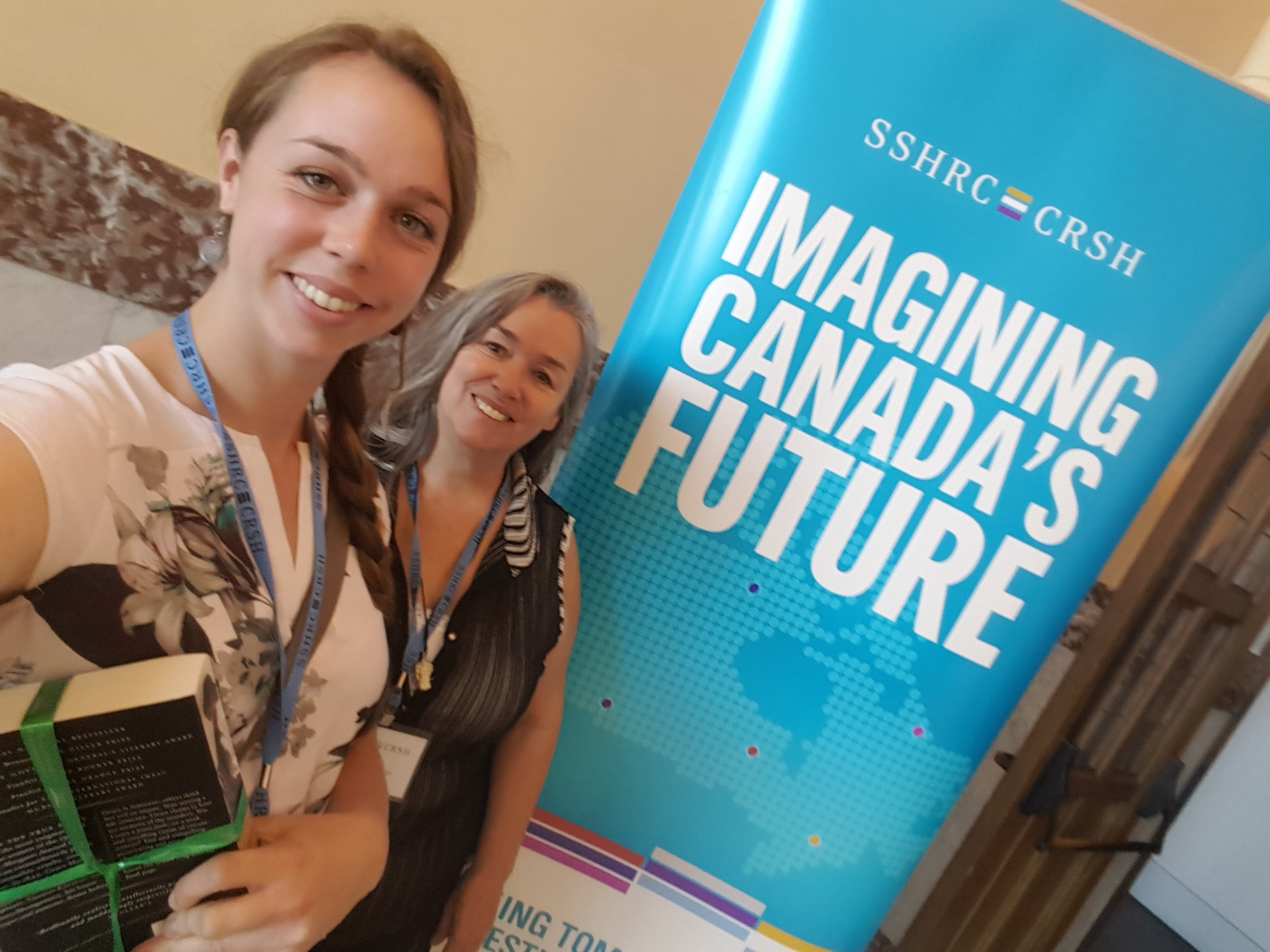Project gathered knowledge from Indigenous Elders on the North Island
NIC faculty Sara Child and research assistant Colette Child attend SHRCC Knowledge Synthesis forum in Ottawa. Sara Child, Caitlin Hartnett and Elder Spruce Wamiss will share their research project O’man’s ‘Nam’a (We are One) Project: Unearthing Indigenous Leadership Principles through Language at a Lunch and Learn event Friday, November 24 from 12 – 1pm.
NIC researchers hope to inspire youth to take up the challenge of language revitalization.
Date: Nov 24, 2017Time: 12 pm - 1 pm Location: Tyee Hall 203, Comox Valley campusSara Child and Caitlin Hartnett spent a year gathering knowledge from local Kwakwaka’wakw Elders, exploring Kwak’wala leadership language and concepts thanks to a Knowledge Synthesis Grant from the Social Science and Humanities Research Council of Canada.
The O’man’s ‘Nam’a (We are One) Project: Unearthing Indigenous Leadership Principles through Language looked at existing research on youth leadership and identified gaps in the knowledge surrounding Indigenous concepts of leadership.
Linguist Katherine Sardinha and research assistant Colette Child supported the application and research process.
Researchers met with local Elders to explore Kwakwaka’wakw leadership principles, values, knowledge systems and connections to the land through the lens of the Kwak’wala language.
Sara Child, NIC instructor and lead researcher on the project, created a youth leadership framework for her Master’s degree in Indigenous Language Revitalization. “Exploring leadership through the language and a localized lens is vitally important,” she said. “Restoration of our language will help to restore relationships that were built upon firm foundations of respect, reciprocity, responsibility and reverence for the natural world, people, places and the land.”
Language revitalization is essential to reconciliation and our individual and collective wellness. However, Kwak’wala, like many Indigenous languages across this land, dangles by a delicate thread, said Child.
“The Elders are the only ones who truly understand these concepts through a purely Kwakwaka’wakw lens,” she said. “The exploration, with the Elders, is not only critical it has been astonishingly rewarding and healing. I cannot express how vitally important it is to draw on their wisdom and document their vital voices.”
The knowledge gathered during the project will infuse the Elders’ wisdom into Child’s Indigenous youth leadership framework and youth leadership camp. “The camp is meant to instill the understanding that our Indigenous languages are vital to our wellness and a basic human right however, the responsibility for upholding the right to learn, teach and restore our languages and ensure Canada upholds that right lies with them,” said Child. “Our languages are vital to our individual and collective wellness and inspiring youth, as our future leaders and parents, is an essential and key aspect of reconciliation.”
The ‘Oman’s ‘Nam’a research team also believes that “ACTION,” is a key aspect of reconciliation. The results will be actioned in further research and implementation of the camp or in the words of the Elders, “Wiga O’ams” (just do it). The camp framework and the development process will be made available to other First Nations and Canadians to assist in developing best practices for locally appropriate leadership programming. It will also be shared with Canadian educators, community facilitators, academic institutions and non‐Indigenous organizations working towards building bridges of reconciliation with First Nations.
Child, Hartnett and Elder Spruce Wamiss will present their research Friday November 24 from 12 – 1 pm at Tyee Hall 203 at NIC’s Comox Valley campus.
Media Contact
Christiana Wiens
Media Liaison, North Island College
O. 250‐334‐5280 | M. 250‐218‐4097
christiana.wiens@nic.bc.ca
